
Gaming Tokens
The gaming industry is undergoing a massive transformation, thanks to the rise of gaming tokens and blockchain technology. These digital assets, often referred to as "crypto gaming coins," are reshaping how players interact with games, own in-game assets, and even earn real-world value from their gameplay.
In this article, we’ll explore what gaming tokens are, how they work, their applications, and the risks associated with them. Whether you’re a gamer, investor, or simply curious about the future of gaming, this guide will provide valuable insights into the world of blockchain-based gaming.
In this article, we’ll explore what gaming tokens are, how they work, their applications, and the risks associated with them. Whether you’re a gamer, investor, or simply curious about the future of gaming, this guide will provide valuable insights into the world of blockchain-based gaming.

Gaming Tokens
What Are Gaming Tokens?
Gaming tokens are digital assets specifically designed for use within gaming ecosystems. Built on blockchain technology, these tokens can represent in-game currency, items, characters, or other virtual assets. Unlike traditional in-game currencies, gaming tokens are often decentralized, meaning players have true ownership and control over their assets.While gaming tokens are sometimes called "coins," they are technically tokens—digital assets created on existing blockchain platforms like Ethereum, Binance Smart Chain, or Polygon. These tokens can be fungible (interchangeable, like currency) or non-fungible (unique, like NFTs).
The Rise of Crypto Gaming
Crypto gaming, or blockchain gaming, integrates cryptocurrencies and blockchain technology into video games. This innovation has given rise to new gaming models, such as play-to-earn (P2E), where players can earn real-world value by playing games.Key features of crypto gaming include:
True Ownership: Players own their in-game assets, which can be traded or sold on decentralized marketplaces.
Interoperability: Assets from one game can sometimes be used in another, creating a connected gaming ecosystem.
Transparency: Blockchain ensures that all transactions are secure, transparent, and immutable.
How Gaming Tokens Work
Gaming tokens serve various purposes within blockchain-based games. Here’s how they function:1. In-Game Currency
Gaming tokens can be used as the primary currency within a game, allowing players to purchase items, unlock features, or trade with other players.
2. Rewards and Incentives
Players can earn tokens by completing quests, winning battles, or participating in events. These tokens can then be used within the game or exchanged for other cryptocurrencies.
3. Governance
Some gaming tokens grant players voting rights, allowing them to influence the development and direction of the game.
4. NFT Integration
Gaming tokens often work alongside NFTs (non-fungible tokens), which represent unique in-game assets like characters, weapons, or virtual real estate.
Applications of Gaming Tokens
Gaming tokens have a wide range of applications, making them a versatile tool in the crypto gaming ecosystem:In-Game Economy:
Tokens power the virtual economy, enabling seamless transactions between players and developers.
Play-to-Earn Models:
Games like Axie Infinity and The Sandbox allow players to earn tokens by playing, which can be converted into real-world money.
Decentralized Ownership:
Players have full control over their assets, which can be traded or sold on decentralized marketplaces.
Community Engagement:
Tokens can be used to reward community participation, such as voting on game updates or contributing to forums.
Popular Gaming Tokens
Several gaming tokens have gained popularity due to their innovative use cases and strong communities. Some notable examples include:AXS (Axie Infinity):
Used in the popular play-to-earn game Axie Infinity, AXS tokens are earned through gameplay and can be used for governance.
SAND (The Sandbox):
SAND is the utility token of The Sandbox, a virtual world where players can create, own, and monetize their gaming experiences.
MANA (Decentraland):
MANA is the currency of Decentraland, a decentralized virtual reality platform where users can buy, sell, and trade virtual real estate.
GALA (Gala Games):
GALA tokens are used across multiple games in the Gala Games ecosystem, rewarding players and enabling in-game purchases.
Risks and Challenges of Gaming Tokens
While gaming tokens offer exciting opportunities, they also come with risks:Project Risks:
Many gaming tokens are tied to specific projects. If the game fails or loses popularity, the token’s value may plummet.
Market Volatility:
Like other cryptocurrencies, gaming tokens are subject to price fluctuations driven by market speculation and manipulation.
Security Risks:
Digital wallets storing gaming tokens can be vulnerable to hacks and cyberattacks.
Liquidity Issues:
Some gaming tokens may have limited liquidity, making it difficult to buy or sell them at desired prices.
Regulatory Uncertainty:
The legal status of gaming tokens varies by jurisdiction, and regulatory changes could impact their use and value.
The Future of Gaming Tokens
The integration of blockchain technology into gaming is still in its early stages, but the potential is immense. Here’s what the future might hold:Mainstream Adoption:
As more gamers and developers embrace blockchain, gaming tokens could become a standard feature in the industry.
Interconnected Ecosystems:
Tokens and assets from one game could be used across multiple platforms, creating a unified gaming economy.
Enhanced Security:
Advances in blockchain technology will improve the security and scalability of gaming tokens.
New Business Models:
Play-to-earn and other innovative models could redefine how games are developed and monetized.
Conclusion
Gaming tokens are revolutionizing the gaming industry by introducing true ownership, decentralized economies, and play-to-earn models. They empower players to take control of their in-game assets and even earn real-world value from their gameplay.However, like any emerging technology, gaming tokens come with risks. Players and investors should conduct thorough research and exercise caution when participating in crypto gaming ecosystems.
As blockchain technology continues to evolve, gaming tokens are poised to play a central role in the future of gaming, offering new opportunities for players, developers, and investors alike.
#GamingTokens #CryptoGaming #BlockchainGaming #PlayToEarn #NFTs #AxieInfinity #TheSandbox #Decentraland




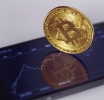
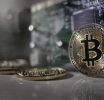
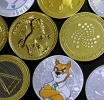
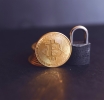
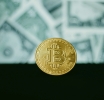
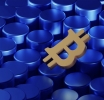




Report
My comments